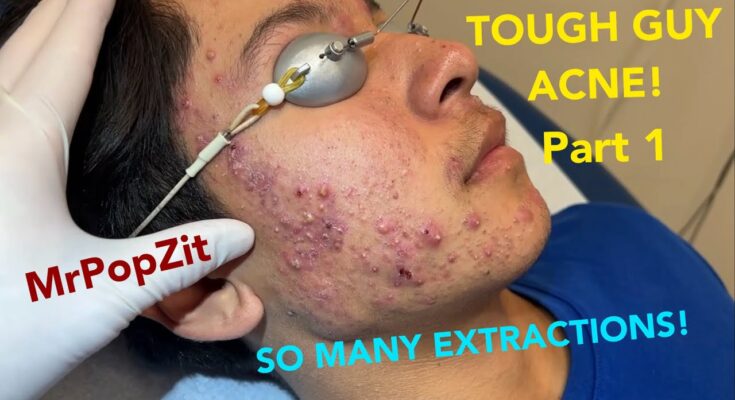Severe hormonal acne in a young patient can be really challenging, both physically and emotionally. Hormonal acne often appears during puberty but can persist into young adulthood, particularly around the jawline, chin, and lower face. It’s driven by fluctuations in hormones, especially androgens, which stimulate the sebaceous (oil) glands, causing clogged pores and breakouts.
Here’s a general approach to managing severe hormonal acne:
1. Topical Treatments
- Benzoyl Peroxide: Great for targeting acne-causing bacteria and reducing inflammation.
- Salicylic Acid: Helps exfoliate and clear out clogged pores. It’s good for preventing blackheads and whiteheads.
- Topical Retinoids: These can help with both acne and reducing hyperpigmentation or scarring. Retinoids like tretinoin work by increasing cell turnover, which helps prevent clogged pores. These are usually recommended for more stubborn cases.
- Azelaic Acid: This can help reduce acne and the redness that comes with it, and it has antibacterial properties.
2. Oral Medications
- Oral Contraceptives (Birth Control): For females, birth control pills that regulate hormone levels can reduce androgens, which in turn reduces oil production and acne.
- Spironolactone: This is an anti-androgen medication that helps reduce the excess production of oil in the skin, often used in women with hormonal acne.
- Antibiotics: Oral antibiotics like doxycycline or minocycline can be prescribed to reduce inflammation and bacteria. These are usually used for more severe cases, especially when there is cystic acne.
- Isotretinoin (Accutane): For very severe cases that don’t respond to other treatments, isotretinoin may be prescribed. This medication is very effective but has significant side effects, so it’s usually reserved for the most resistant cases.
3. Skincare Routine
- Gentle Cleansing: Use a gentle, non-comedogenic cleanser to avoid over-drying the skin, which can actually trigger more oil production.
- Moisturizing: Even oily skin needs moisture. A lightweight, non-comedogenic moisturizer can help keep the skin hydrated and prevent further irritation.
- Sunscreen: This is super important, especially if using retinoids or other acne treatments that increase sun sensitivity. Make sure to use an oil-free, non-comedogenic sunscreen daily.
4. Diet & Lifestyle
- Reduce Sugary Foods and Dairy: For some people, dairy or high-glycemic foods (like sugary snacks) can exacerbate acne. While the link isn’t the same for everyone, it’s worth experimenting with cutting back on these foods.
- Hydration: Drinking plenty of water helps keep the skin hydrated and may improve overall skin health.
- Stress Management: Hormonal fluctuations can be influenced by stress, so finding ways to reduce stress (through exercise, meditation, etc.) can help manage acne.
5. Professional Treatments
- Chemical Peels: Sometimes, dermatologists will recommend chemical peels with salicylic acid or glycolic acid to help clear clogged pores and reduce acne.
- Laser Treatments: Laser therapy, such as light or blue light treatments, can target acne-causing bacteria and reduce inflammation.
- Extraction of Cysts: A dermatologist can carefully extract large cysts or pimples that may be too painful or too large to clear up on their own.
6. Consistency & Patience
- Be Consistent: Acne treatments can take time to show results—usually 4-6 weeks, sometimes longer.
- Avoid Over-Treating: Sometimes people use too many products or too strong of treatments, thinking it’ll speed things up, but this can irritate the skin and worsen the acne.
It’s really helpful to have a dermatologist involved to make sure you’re taking the best approach, especially for severe cases of hormonal acne. They can help tailor a treatment plan and possibly adjust medications over time.
Is this someone you know who’s struggling with it? Or are you seeking advice for a personal experience?



